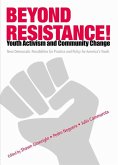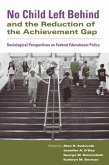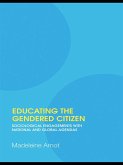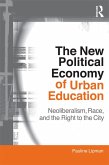Invisible No More (eBook, PDF)
Understanding the Disenfranchisement of Latino Men and Boys
Redaktion: Noguera, Pedro; Fergus, Edward; Hurtado, Aída
59,95 €
59,95 €
inkl. MwSt.
Sofort per Download lieferbar

30 °P sammeln
59,95 €
Als Download kaufen

59,95 €
inkl. MwSt.
Sofort per Download lieferbar

30 °P sammeln
Jetzt verschenken
Alle Infos zum eBook verschenken
59,95 €
inkl. MwSt.
Sofort per Download lieferbar
Alle Infos zum eBook verschenken

30 °P sammeln
Invisible No More (eBook, PDF)
Understanding the Disenfranchisement of Latino Men and Boys
Redaktion: Noguera, Pedro; Fergus, Edward; Hurtado, Aída
- Format: PDF
- Merkliste
- Auf die Merkliste
- Bewerten Bewerten
- Teilen
- Produkt teilen
- Produkterinnerung
- Produkterinnerung

Bitte loggen Sie sich zunächst in Ihr Kundenkonto ein oder registrieren Sie sich bei
bücher.de, um das eBook-Abo tolino select nutzen zu können.
Hier können Sie sich einloggen
Hier können Sie sich einloggen
Sie sind bereits eingeloggt. Klicken Sie auf 2. tolino select Abo, um fortzufahren.

Bitte loggen Sie sich zunächst in Ihr Kundenkonto ein oder registrieren Sie sich bei bücher.de, um das eBook-Abo tolino select nutzen zu können.
This groundbreaking interdisciplinary volume addresses the dearth of scholarship and information about Latino men and boys to further our understanding of the unique challenges and obstacles that they confront during this historical moment.
- Geräte: PC
- mit Kopierschutz
- eBook Hilfe
- Größe: 2.34MB
Andere Kunden interessierten sich auch für
![Revealing the Invisible (eBook, PDF) Revealing the Invisible (eBook, PDF)]() Sherry MarxRevealing the Invisible (eBook, PDF)46,95 €
Sherry MarxRevealing the Invisible (eBook, PDF)46,95 €![Beyond Resistance! Youth Activism and Community Change (eBook, PDF) Beyond Resistance! Youth Activism and Community Change (eBook, PDF)]() Beyond Resistance! Youth Activism and Community Change (eBook, PDF)51,95 €
Beyond Resistance! Youth Activism and Community Change (eBook, PDF)51,95 €![No Child Left Behind and the Reduction of the Achievement Gap (eBook, PDF) No Child Left Behind and the Reduction of the Achievement Gap (eBook, PDF)]() No Child Left Behind and the Reduction of the Achievement Gap (eBook, PDF)48,95 €
No Child Left Behind and the Reduction of the Achievement Gap (eBook, PDF)48,95 €![Educating the Gendered Citizen (eBook, PDF) Educating the Gendered Citizen (eBook, PDF)]() Madeleine ArnotEducating the Gendered Citizen (eBook, PDF)46,95 €
Madeleine ArnotEducating the Gendered Citizen (eBook, PDF)46,95 €![Gender Education and Equality in a Global Context (eBook, PDF) Gender Education and Equality in a Global Context (eBook, PDF)]() Shailaja FennellGender Education and Equality in a Global Context (eBook, PDF)45,95 €
Shailaja FennellGender Education and Equality in a Global Context (eBook, PDF)45,95 €![Minority Status, Oppositional Culture, & Schooling (eBook, PDF) Minority Status, Oppositional Culture, & Schooling (eBook, PDF)]() Minority Status, Oppositional Culture, & Schooling (eBook, PDF)62,95 €
Minority Status, Oppositional Culture, & Schooling (eBook, PDF)62,95 €![The New Political Economy of Urban Education (eBook, PDF) The New Political Economy of Urban Education (eBook, PDF)]() Pauline LipmanThe New Political Economy of Urban Education (eBook, PDF)47,95 €
Pauline LipmanThe New Political Economy of Urban Education (eBook, PDF)47,95 €-
-
-
This groundbreaking interdisciplinary volume addresses the dearth of scholarship and information about Latino men and boys to further our understanding of the unique challenges and obstacles that they confront during this historical moment.
Dieser Download kann aus rechtlichen Gründen nur mit Rechnungsadresse in A, B, BG, CY, CZ, D, DK, EW, E, FIN, F, GR, HR, H, IRL, I, LT, L, LR, M, NL, PL, P, R, S, SLO, SK ausgeliefert werden.
Produktdetails
- Produktdetails
- Verlag: Taylor & Francis eBooks
- Seitenzahl: 336
- Erscheinungstermin: 17. Juni 2013
- Englisch
- ISBN-13: 9781136700507
- Artikelnr.: 38272648
- Verlag: Taylor & Francis eBooks
- Seitenzahl: 336
- Erscheinungstermin: 17. Juni 2013
- Englisch
- ISBN-13: 9781136700507
- Artikelnr.: 38272648
- Herstellerkennzeichnung Die Herstellerinformationen sind derzeit nicht verfügbar.
Pedro Noguera is Peter L. Agnew Professor of Education in the Steinhardt School of Culture, Education, and Human Development at New York University. Aída Hurtado is Professor and Luis Leal Endowed Chair in the Chicana and Chicano Studies Department at University of California, Santa Barbara. Edward A. Fergus is Deputy Director of the Metropolitan Center for Urban Education at New York University.
Introduction
1. Invisible No More: The Status and Experience of Latino Males from
Multidisciplinary Perspectives Pedro Noguera, Aída Hurtado
Section 1: The State of Latino Males
2. Social Mobility and the Complex Status of Latino Males: Education,
Employment, and Incarceration Patterns from 2000-2009, Mellie Torres,
Edward Fergus
3. Adolescent Mexican American Males: No Increased Risk of Mental Health
Problems, Robert E. Roberts, Catherine Ramsay Roberts
4. Reducing Sexual and Reproductive Health Disparities Among Latino Men:
Exploring Solutions in the Boundaries of Masculinity, Miguel Muñoz-Laboy,
Ashley Perrry
5. Searching for Ideal Masculinity: Negotiating Day Labor Work and Life at
the Margins, Abel Valenzuela, Jr., Maria C. Olivares Pasillas
Section 2: Masculinity Construction
6. "Where the Boys Are": Macro and Micro Considerations for the Study of
Young Latino Men's Educational Achievement, Aída Hurtado, Craig Haney, Jose
G. Hurtado
7. Taking Count of Gender and Legal Status Within Latino Media Policy,
Dolores Inés-Casillas
8. Anchoring the Measurement of Machismo and Latino Male Identity in
Contemporary Definition and Theory, Maria Félix-Ortiz, Ian Ankney, Megan
Brodie, Harold Rodinsky
9. Transforming Boys, Transforming Masculinity, Transforming Culture:
Masculinity Anew in Latino and Latina Children's Literature, Phillip
Serrato
10. Undocumented Latino Youth: Strategies for Accessing Higher Education,
Daysi Diaz-Strong, Christina Gómez, María E. Luna-Duarte, Erica R. Meiners
11. Claiming Queer Cultural Citizenship: Gay Latino (Im)migrant Acts in San
Francisco, Horacio N. Roque Ramirez
Section 3: Race, Gender, and Skin Color in Constructing Identification
12. Does Race and National Origin Influence the Hourly Wages That Latino
Males Receive? Clara E. Rodríguez, Grigoris Argeros, Michal H. Miyawaki
13. The Relevance of Skin Color in the Construction of an Ethnic
Identification Among Mexican and Puerto Rican Boys, Edward Fergus
14. Racially Stigmatized Masculinities and Empowerment: Conceptualizing and
Nurturing Latino Males' Schooling in the United States, Nancy López
15. "Sometimes You Need to Spill Your Heart Out to Somebody": Close
Friendships Among Latino Adolescent Boys, Niobe Way, Carlos Santos,
Alexandra Cordero
Section 4: Environmental Factors and Violence
16. Street Socialization and the Psychosocial Moratorium, James Diego Vigil
17. Latino Male Violence in the United States, Ramiro Martinez, Jr., Jacob
I. Stowell
Conclusion
18. What We Have Learned: The Role of Public Policy in Promoting Macro and
Micro Levels of Intervention in Response to the Challenges Confronting
Latino Men, Pedro Noguera, Aída Hurtado, Edward Fergus
Contributor Biographies
Index
1. Invisible No More: The Status and Experience of Latino Males from
Multidisciplinary Perspectives Pedro Noguera, Aída Hurtado
Section 1: The State of Latino Males
2. Social Mobility and the Complex Status of Latino Males: Education,
Employment, and Incarceration Patterns from 2000-2009, Mellie Torres,
Edward Fergus
3. Adolescent Mexican American Males: No Increased Risk of Mental Health
Problems, Robert E. Roberts, Catherine Ramsay Roberts
4. Reducing Sexual and Reproductive Health Disparities Among Latino Men:
Exploring Solutions in the Boundaries of Masculinity, Miguel Muñoz-Laboy,
Ashley Perrry
5. Searching for Ideal Masculinity: Negotiating Day Labor Work and Life at
the Margins, Abel Valenzuela, Jr., Maria C. Olivares Pasillas
Section 2: Masculinity Construction
6. "Where the Boys Are": Macro and Micro Considerations for the Study of
Young Latino Men's Educational Achievement, Aída Hurtado, Craig Haney, Jose
G. Hurtado
7. Taking Count of Gender and Legal Status Within Latino Media Policy,
Dolores Inés-Casillas
8. Anchoring the Measurement of Machismo and Latino Male Identity in
Contemporary Definition and Theory, Maria Félix-Ortiz, Ian Ankney, Megan
Brodie, Harold Rodinsky
9. Transforming Boys, Transforming Masculinity, Transforming Culture:
Masculinity Anew in Latino and Latina Children's Literature, Phillip
Serrato
10. Undocumented Latino Youth: Strategies for Accessing Higher Education,
Daysi Diaz-Strong, Christina Gómez, María E. Luna-Duarte, Erica R. Meiners
11. Claiming Queer Cultural Citizenship: Gay Latino (Im)migrant Acts in San
Francisco, Horacio N. Roque Ramirez
Section 3: Race, Gender, and Skin Color in Constructing Identification
12. Does Race and National Origin Influence the Hourly Wages That Latino
Males Receive? Clara E. Rodríguez, Grigoris Argeros, Michal H. Miyawaki
13. The Relevance of Skin Color in the Construction of an Ethnic
Identification Among Mexican and Puerto Rican Boys, Edward Fergus
14. Racially Stigmatized Masculinities and Empowerment: Conceptualizing and
Nurturing Latino Males' Schooling in the United States, Nancy López
15. "Sometimes You Need to Spill Your Heart Out to Somebody": Close
Friendships Among Latino Adolescent Boys, Niobe Way, Carlos Santos,
Alexandra Cordero
Section 4: Environmental Factors and Violence
16. Street Socialization and the Psychosocial Moratorium, James Diego Vigil
17. Latino Male Violence in the United States, Ramiro Martinez, Jr., Jacob
I. Stowell
Conclusion
18. What We Have Learned: The Role of Public Policy in Promoting Macro and
Micro Levels of Intervention in Response to the Challenges Confronting
Latino Men, Pedro Noguera, Aída Hurtado, Edward Fergus
Contributor Biographies
Index
Introduction
1. Invisible No More: The Status and Experience of Latino Males from
Multidisciplinary Perspectives Pedro Noguera, Aída Hurtado
Section 1: The State of Latino Males
2. Social Mobility and the Complex Status of Latino Males: Education,
Employment, and Incarceration Patterns from 2000-2009, Mellie Torres,
Edward Fergus
3. Adolescent Mexican American Males: No Increased Risk of Mental Health
Problems, Robert E. Roberts, Catherine Ramsay Roberts
4. Reducing Sexual and Reproductive Health Disparities Among Latino Men:
Exploring Solutions in the Boundaries of Masculinity, Miguel Muñoz-Laboy,
Ashley Perrry
5. Searching for Ideal Masculinity: Negotiating Day Labor Work and Life at
the Margins, Abel Valenzuela, Jr., Maria C. Olivares Pasillas
Section 2: Masculinity Construction
6. "Where the Boys Are": Macro and Micro Considerations for the Study of
Young Latino Men's Educational Achievement, Aída Hurtado, Craig Haney, Jose
G. Hurtado
7. Taking Count of Gender and Legal Status Within Latino Media Policy,
Dolores Inés-Casillas
8. Anchoring the Measurement of Machismo and Latino Male Identity in
Contemporary Definition and Theory, Maria Félix-Ortiz, Ian Ankney, Megan
Brodie, Harold Rodinsky
9. Transforming Boys, Transforming Masculinity, Transforming Culture:
Masculinity Anew in Latino and Latina Children's Literature, Phillip
Serrato
10. Undocumented Latino Youth: Strategies for Accessing Higher Education,
Daysi Diaz-Strong, Christina Gómez, María E. Luna-Duarte, Erica R. Meiners
11. Claiming Queer Cultural Citizenship: Gay Latino (Im)migrant Acts in San
Francisco, Horacio N. Roque Ramirez
Section 3: Race, Gender, and Skin Color in Constructing Identification
12. Does Race and National Origin Influence the Hourly Wages That Latino
Males Receive? Clara E. Rodríguez, Grigoris Argeros, Michal H. Miyawaki
13. The Relevance of Skin Color in the Construction of an Ethnic
Identification Among Mexican and Puerto Rican Boys, Edward Fergus
14. Racially Stigmatized Masculinities and Empowerment: Conceptualizing and
Nurturing Latino Males' Schooling in the United States, Nancy López
15. "Sometimes You Need to Spill Your Heart Out to Somebody": Close
Friendships Among Latino Adolescent Boys, Niobe Way, Carlos Santos,
Alexandra Cordero
Section 4: Environmental Factors and Violence
16. Street Socialization and the Psychosocial Moratorium, James Diego Vigil
17. Latino Male Violence in the United States, Ramiro Martinez, Jr., Jacob
I. Stowell
Conclusion
18. What We Have Learned: The Role of Public Policy in Promoting Macro and
Micro Levels of Intervention in Response to the Challenges Confronting
Latino Men, Pedro Noguera, Aída Hurtado, Edward Fergus
Contributor Biographies
Index
1. Invisible No More: The Status and Experience of Latino Males from
Multidisciplinary Perspectives Pedro Noguera, Aída Hurtado
Section 1: The State of Latino Males
2. Social Mobility and the Complex Status of Latino Males: Education,
Employment, and Incarceration Patterns from 2000-2009, Mellie Torres,
Edward Fergus
3. Adolescent Mexican American Males: No Increased Risk of Mental Health
Problems, Robert E. Roberts, Catherine Ramsay Roberts
4. Reducing Sexual and Reproductive Health Disparities Among Latino Men:
Exploring Solutions in the Boundaries of Masculinity, Miguel Muñoz-Laboy,
Ashley Perrry
5. Searching for Ideal Masculinity: Negotiating Day Labor Work and Life at
the Margins, Abel Valenzuela, Jr., Maria C. Olivares Pasillas
Section 2: Masculinity Construction
6. "Where the Boys Are": Macro and Micro Considerations for the Study of
Young Latino Men's Educational Achievement, Aída Hurtado, Craig Haney, Jose
G. Hurtado
7. Taking Count of Gender and Legal Status Within Latino Media Policy,
Dolores Inés-Casillas
8. Anchoring the Measurement of Machismo and Latino Male Identity in
Contemporary Definition and Theory, Maria Félix-Ortiz, Ian Ankney, Megan
Brodie, Harold Rodinsky
9. Transforming Boys, Transforming Masculinity, Transforming Culture:
Masculinity Anew in Latino and Latina Children's Literature, Phillip
Serrato
10. Undocumented Latino Youth: Strategies for Accessing Higher Education,
Daysi Diaz-Strong, Christina Gómez, María E. Luna-Duarte, Erica R. Meiners
11. Claiming Queer Cultural Citizenship: Gay Latino (Im)migrant Acts in San
Francisco, Horacio N. Roque Ramirez
Section 3: Race, Gender, and Skin Color in Constructing Identification
12. Does Race and National Origin Influence the Hourly Wages That Latino
Males Receive? Clara E. Rodríguez, Grigoris Argeros, Michal H. Miyawaki
13. The Relevance of Skin Color in the Construction of an Ethnic
Identification Among Mexican and Puerto Rican Boys, Edward Fergus
14. Racially Stigmatized Masculinities and Empowerment: Conceptualizing and
Nurturing Latino Males' Schooling in the United States, Nancy López
15. "Sometimes You Need to Spill Your Heart Out to Somebody": Close
Friendships Among Latino Adolescent Boys, Niobe Way, Carlos Santos,
Alexandra Cordero
Section 4: Environmental Factors and Violence
16. Street Socialization and the Psychosocial Moratorium, James Diego Vigil
17. Latino Male Violence in the United States, Ramiro Martinez, Jr., Jacob
I. Stowell
Conclusion
18. What We Have Learned: The Role of Public Policy in Promoting Macro and
Micro Levels of Intervention in Response to the Challenges Confronting
Latino Men, Pedro Noguera, Aída Hurtado, Edward Fergus
Contributor Biographies
Index







